Senokot Syrup
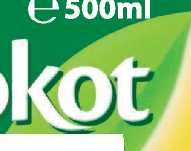

«

For the short term relief of occasional constipation. Laxatives do not affect the number of calories absorbed from food. This means they do not help with weight loss.
' SENOKOT SYRUP PHARMACY. '
For oral use only.
Adults, the elderly and children over
12 years: One to two 5 ml spoonfuls at night. Not to be given to children under 12 years without medical advice. Do not exceed the stated dose.
New users should start with the lowest dose and increase it to the maximum dose for each age group, if necessary, by one half of the initial dose each day.
Once regularity has been regained dosage should be reduced and can usually be stopped. If symptoms worsen, if there is no bowel movement after 3 days, if laxatives are needed every day, if abdominal pain persists or if other symptoms persist, consult your doctor. Use for more than 1-2 weeks requires medical supervision.
See enclosed leaflet for further information.
Each 5 ml of syrup contains sennosides, as calcium salts, equivalent to 7.5 mg hydroxyanthracene glycosides, calculated as sennoside B. Also contains methyl and propyl parahydroxybenzoate ethanol and maltitol liquid.
Caution is advised if you are diabetic as each 5ml contains 3.2 kilocalories.
Do not store above 25°C. Do not freeze. Do not use after the expiry date (EXP month/year). Replace cap firmly. If the seal on the cap is broken do not use.
Keep out of sight and reach of children.
PL 00063/0129
Manufacturer and PL Holder: Reckitt Benckiser Healthcare (UK) Ltd,
Hull HU8 7DS, UK
UK Distributor: Forum Healthcare Products Ltd.
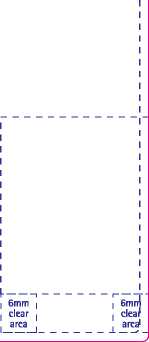
Pharmacode Reads This Way <-
Last Bar
First Bar
Senokot Syrup Pharmacy sennosides (Senna)
PATIENT INFORMATION LEAFLET
Read this leaflet carefully because it contains
important information for you.
• Keep this leaflet. You may need to read it again.
• Ask your pharmacist if you need more information or advice.
• You must contact a doctor if your symptoms worsen or do not improve after 3 days.
• If any of the side effects get serious or if you notice any side effect not listed in this leaflet, please tell your doctor or pharmacist.
In this leaflet:
1. What Senokot Syrup Pharmacy is and what it is used for
2. Before taking Senokot Syrup Pharmacy
3. How to take Senokot Syrup Pharmacy
4. Possible side effects
5. How to store Senokot Syrup Pharmacy
s6. Further information
1. What Senokot Syrup Pharmacy is and
what it is used for
Senokot is used for the short term relief of occasional
constipation.
This medicine does not help with weight loss.
2. Before taking Senokot Syrup Pharmacy
Do not take if you:
- are allergic to any of the ingredients (for a full list of ingredients, see section 6)
- have blockage or narrowing of the gastro-intestinal tract or bowel (ileus, intestinal obstruction or stenosis)
- have paralysis or a lack of muscle tone in the bowel (atony)
- have appendicitis, inflammatory bowel disease such as Crohn's disease or ulcerative colitis
- have severe dehydration
- have persistent or undiagnosed abdominal complaints e.g pain, nausea, or vomiting
- have faecal impaction or rectal bleeding for which you don’t know the cause, or blood in your stools
- have already taken a laxative and are still constipated

/Once regularity has been regained dosage ,''should be reduced and can usually be stopped. /Duration of use
formally it is sufficient to take this medicinal product up to two to three times a week. Use for more than 1-2 weeks requires medical supervision. Tell a doctor, pharmacist or nurse if:
- the symptoms worsen or persist during the use of the medicinal product
- there is no bowel movement within 3 days of use
- you need to take laxatives every day or if abdominal pain persists.
If you take too much Syrup:
Consult your doctor and take this leaflet with you.
It may be harmful to take too much of this medicine or take it for too long. This is because it may lead to:
- A ‘lazy bowel’, where the muscle in the bowel becomes too relaxed. This means that bowel emptying happens less often. This can lead to long-term constipation.
- Imbalance of fluids and salts in the body. This can affect the tightness of muscles such as those in the bowel. It can also affect the salts in the blood.
- Low levels of potassium in the blood (called hypo-kalaemia). This can make you tired, dizzy, make
your muscles weak and cause an uneven heart-beat.
- Dehydration, making you thirsty, feel faint and giving you headaches. It can also mean that you cannot pass enough urine.
If you miss a dose:
If you miss a dose, take your next dose at the usual
time. Do not take two doses at the same time to make up
for the missed dose.
Always consult your doctor if you need further advice.
4. Possible side effects
Like all medicines, this medicine can cause side effects,
although not everybody gets them.
If any of the following or any other side effects occur, stop taking this medicine and consult a doctor or pharmacist:
- abdominal pain, spasms and diarrhoea, in particular these effects may be experienced by patients with irritable colon. In these cases, a reduction in dose may be necessary.
- hypersensitivity (allergic) reactions, hives (skin bumps), skin itchiness or local or more widespread rash, or asthma.
- can make you more likely to catch infections.
- chronic use may lead to albuminuria and haematuria

t,/LLUlUU.I.
PRINTING READS This Way



- have had a sudden change in bowel habit that has lasted for more than 2 weeks
- are pregnant or breast-feeding
- have kidney or heart failure
Tell your doctor, pharmacist or nurse if:
- you suffer from kidney disorders
- you are taking medicines for a heart condition (e.g. cardiac glycosides, antiarrhythmic medicines e.g quinidine), medicines inducing QT elongation, diuretics, adrenocorticosteroids or liquorice
root preparations.
When administering this product to incontinent adults, pads should be changed more frequently to prevent extended skin contact with faeces.
It is recommended to use changes in diet and bulk forming medicines to control constipation before using this medicine.
Information about some of the ingredients in this medicine
This medicine contains maltitol liquid (E965). If you have been told by your doctor that you have intolerance to some sugars, contact your doctor before taking this medicine. Caution should he taken if you are diabetic as each 5ml contains 3.2 kilocalories.
This medicinal product also contains:
- methyl (E218) and propyl (E216) parahydroxybenzoate, which may cause allergic reactions (possibly delayed)
- small amounts of ethanol (alcohol), less than lOOmg per dose.
Taking other medicines You should consult your doctor or pharmacist for advice if you are taking or have recently taken any other medicines, including those listed above and any medicines obtained without a prescription.
3. How to take Senokot Syrup Pharmacy Adults, the elderly and children over 12 years: One to two 5 ml spoonfuls at night, unless otherwise advised by a medical practitioner.
Children over 6 years: One to two 5 ml spoonfuls at night under the guidance of a medical professional. Children aged 2 to 6 years: Half to one S ml spoonfuls at night under the guidance of a medical professional. Do not exceed the stated dose New users should start with the lowest dose and increase it to the maximum dose for each age group, if necessary, by one half of the initial dose each day.
which is albumin or red blood cells in the urine.
- yellow or red-brown discolouration of urine may occur, which is harmless
- chronic use may cause pigmentation of the gastrointestinal tract which usually recedes when the product is no longer taken.
- low potassium levels in the blood leading to muscle weakness and/or cramps
- severe weight loss
- changes in the shape of the finger and fingernail, muscular spasms and inflammation of hones and joints
The frequency is not known.
Reporting of side effects
If you get any side effects, talk to your doctor,
pharmacist or nurse. This includes any possible side
effects not listed in this leaflet. You can also report side
effects directly via the Yellow Card Scheme at:
http://www.mhra.gov.uk/yellowcard
By reporting side effects you can help provide more
information on the safety of this medicine.
S. How to store Senokot Syrup Pharmacy Keep this medicine out of the sight and reach of children.
Do not store above 25°C. Do not freeze
Do not use after the expiry date shown on the pack
(EXP month/year).
Return any unused medicine to your pharmacist for safe disposal.
6. Further information
Each 5 ml of syrup contains sennosides, as calcium salts, equivalent to 7.5 mg hydroxyanthracene glycosides, calculated as sennoside B. The other ingredients are potassium sorbate (E202), methyl parahydroxybenzoate (E218), propyl parahydroxybenzoate (E216), maltitol liquid (E965), xanthan gum, anti-foam emulsion, prune flavour (caramel colour El50a, ethanol, prune juice concentrate, vanilla bean extract, water), citric acid anhydrous and purified water Senokot Syrup is available in 500 ml glass bottle. Manufacturer and PL Holder:
Reckitt Benckiser Healthcare (UK) Limited, Hull, HU8 7DS
PL 00063/0129
Leaflet last revised February 2016.
Senokot is a trademark.
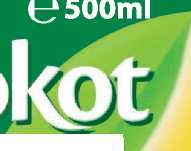
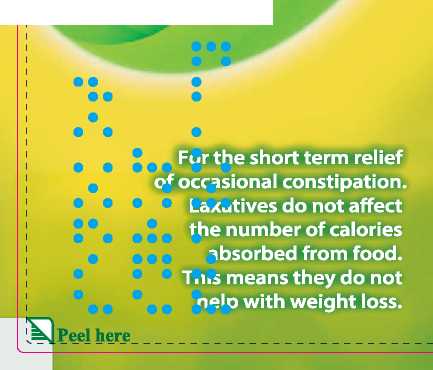
' SENOKOT SYRUP PHARMACY. '
For oral use only.
Adults, the elderly and children over
12 years: One to two 5 ml spoonfuls at night. Not to be given to children under 12 years without medical advice. Do not exceed the stated dose.
New users should start with the lowest dose and increase it to the maximum dose for each age group, if necessary, by one half of the initial dose each day.
Once regularity has been regained dosage should be reduced and can usually be stopped. If symptoms worsen, if there is no bowel movement after 3 days, if laxatives are needed every day, if abdominal pain persists or if other symptoms persist, consult your doctor. Use for more than 1-2 weeks requires medical supervision.
See enclosed leaflet for further information.
Each 5 ml of syrup contains sennosides, as calcium salts, equivalent to 7.5 mg hydroxyanthracene glycosides, calculated as sennoside B. Also contains methyl and propyl parahydroxybenzoate ethanol and maltitol liquid.
Caution is advised if you are diabetic as each 5ml contains 3.2 kilocalories.
Do not store above 25°C. Do not freeze. Do not use after the expiry date (EXP month/year). Replace cap firmly. If the seal on the cap is broken do not use.
Keep out of sight and reach of children.
PL 00063/0129
Manufacturer and PL Holder: Reckitt Benckiser Healthcare (UK) Ltd,
Hull HU8 7DS, UK
UK Distributor: Forum Healthcare Products Ltd.
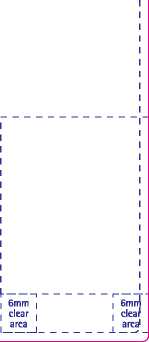
Pharmacode Reads This Way <-
Last Bar
First Bar
Senokot Syrup Pharmacy sennosides (Senna)
PATIENT INFORMATION LEAFLET
Read this leaflet carefully because it contains
important information for you.
• Keep this leaflet. You may need to read it again.
• Ask your pharmacist if you need more information or advice.
• You must contact a doctor if your symptoms worsen or do not improve after 3 days.
• If any of the side effects get serious or if you notice any side effect not listed in this leaflet, please tell your doctor or pharmacist.
In this leaflet:
1. What Senokot Syrup Pharmacy is and what it is used for
2. Before taking Senokot Syrup Pharmacy
3. How to take Senokot Syrup Pharmacy
4. Possible side effects
5. How to store Senokot Syrup Pharmacy
s6. Further information
1. What Senokot Syrup Pharmacy is and
what it is used for
Senokot is used for the short term relief of occasional
constipation.
This medicine does not help with weight loss.
2. Before taking Senokot Syrup Pharmacy
Do not take if you:
- are allergic to any of the ingredients (for a full list of ingredients, see section 6)
- have blockage or narrowing of the gastro-intestinal tract or bowel (ileus, intestinal obstruction or stenosis)
- have paralysis or a lack of muscle tone in the bowel (atony)
- have appendicitis, inflammatory bowel disease such as Crohn's disease or ulcerative colitis
- have severe dehydration
- have persistent or undiagnosed abdominal complaints e.g pain, nausea, or vomiting
- have faecal impaction or rectal bleeding for which you don’t know the cause, or blood in your stools
- have already taken a laxative and are still constipated

/Once regularity has been regained dosage ,''should be reduced and can usually be stopped. /Duration of use
formally it is sufficient to take this medicinal product up to two to three times a week. Use for more than 1-2 weeks requires medical supervision. Tell a doctor, pharmacist or nurse if:
- the symptoms worsen or persist during the use of the medicinal product
- there is no bowel movement within 3 days of use
- you need to take laxatives every day or if abdominal pain persists.
If you take too much Syrup:
Consult your doctor and take this leaflet with you.
It may be harmful to take too much of this medicine or take it for too long. This is because it may lead to:
- A ‘lazy bowel’, where the muscle in the bowel becomes too relaxed. This means that bowel emptying happens less often. This can lead to long-term constipation.
- Imbalance of fluids and salts in the body. This can affect the tightness of muscles such as those in the bowel. It can also affect the salts in the blood.
- Low levels of potassium in the blood (called hypo-kalaemia). This can make you tired, dizzy, make
your muscles weak and cause an uneven heart-beat.
- Dehydration, making you thirsty, feel faint and giving you headaches. It can also mean that you cannot pass enough urine.
If you miss a dose:
If you miss a dose, take your next dose at the usual
time. Do not take two doses at the same time to make up
for the missed dose.
Always consult your doctor if you need further advice.
4. Possible side effects
Like all medicines, this medicine can cause side effects,
although not everybody gets them.
If any of the following or any other side effects occur, stop taking this medicine and consult a doctor or pharmacist:
- abdominal pain, spasms and diarrhoea, in particular these effects may be experienced by patients with irritable colon. In these cases, a reduction in dose may be necessary.
- hypersensitivity (allergic) reactions, hives (skin bumps), skin itchiness or local or more widespread rash, or asthma.
- can make you more likely to catch infections.
- chronic use may lead to albuminuria and haematuria

PRINTING READS This Way
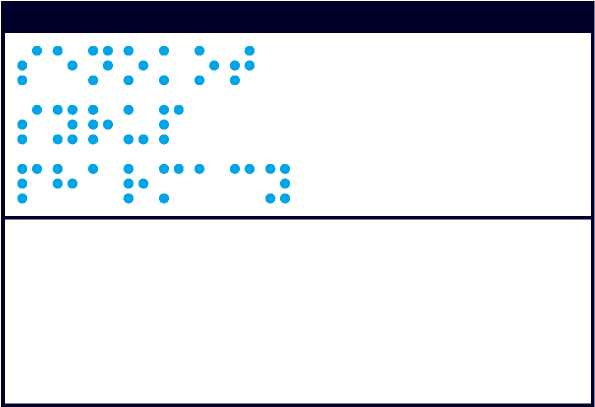


- have had a sudden change in bowel habit that has lasted for more than 2 weeks
- are pregnant or breast-feeding
- have kidney or heart failure
Tell your doctor, pharmacist or nurse if:
- you suffer from kidney disorders
- you are taking medicines for a heart condition (e.g. cardiac glycosides, antiarrhythmic medicines e.g quinidine), medicines inducing QT elongation, diuretics, adrenocorticosteroids or liquorice
root preparations.
When administering this product to incontinent adults, pads should be changed more frequently to prevent extended skin contact with faeces.
It is recommended to use changes in diet and bulk forming medicines to control constipation before using this medicine.
Information about some of the ingredients in this medicine
This medicine contains maltitol liquid (E965). If you have been told by your doctor that you have intolerance to some sugars, contact your doctor before taking this medicine. Caution should he taken if you are diabetic as each 5ml contains 3.2 kilocalories.
This medicinal product also contains:
- methyl (E218) and propyl (E216) parahydroxybenzoate, which may cause allergic reactions (possibly delayed)
- small amounts of ethanol (alcohol), less than lOOmg per dose.
Taking other medicines You should consult your doctor or pharmacist for advice if you are taking or have recently taken any other medicines, including those listed above and any medicines obtained without a prescription.
3. How to take Senokot Syrup Pharmacy Adults, the elderly and children over 12 years: One to two 5 ml spoonfuls at night, unless otherwise advised by a medical practitioner.
Children over 6 years: One to two 5 ml spoonfuls at night under the guidance of a medical professional. Children aged 2 to 6 years: Half to one S ml spoonfuls at night under the guidance of a medical professional. Do not exceed the stated dose New users should start with the lowest dose and increase it to the maximum dose for each age group, if necessary, by one half of the initial dose each day.
which is albumin or red blood cells in the urine.
- yellow or red-brown discolouration of urine may occur, which is harmless
- chronic use may cause pigmentation of the gastrointestinal tract which usually recedes when the product is no longer taken.
- low potassium levels in the blood leading to muscle weakness and/or cramps
- severe weight loss
- changes in the shape of the finger and fingernail, muscular spasms and inflammation of hones and joints
The frequency is not known.
Reporting of side effects
If you get any side effects, talk to your doctor,
pharmacist or nurse. This includes any possible side
effects not listed in this leaflet. You can also report side
effects directly via the Yellow Card Scheme at:
http://www.mhra.gov.uk/yellowcard
By reporting side effects you can help provide more
information on the safety of this medicine.
S. How to store Senokot Syrup Pharmacy Keep this medicine out of the sight and reach of children.
Do not store above 25°C. Do not freeze
Do not use after the expiry date shown on the pack
(EXP month/year).
Return any unused medicine to your pharmacist for safe disposal.
6. Further information
Each 5 ml of syrup contains sennosides, as calcium salts, equivalent to 7.5 mg hydroxyanthracene glycosides, calculated as sennoside B. The other ingredients are potassium sorbate (E202), methyl parahydroxybenzoate (E218), propyl parahydroxybenzoate (E216), maltitol liquid (E965), xanthan gum, anti-foam emulsion, prune flavour (caramel colour El50a, ethanol, prune juice concentrate, vanilla bean extract, water), citric acid anhydrous and purified water Senokot Syrup is available in 500 ml glass bottle. Manufacturer and PL Holder:
Reckitt Benckiser Healthcare (UK) Limited, Hull, HU8 7DS
PL 00063/0129
Leaflet last revised February 2016.
Senokot is a trademark.
PAGE FOUR